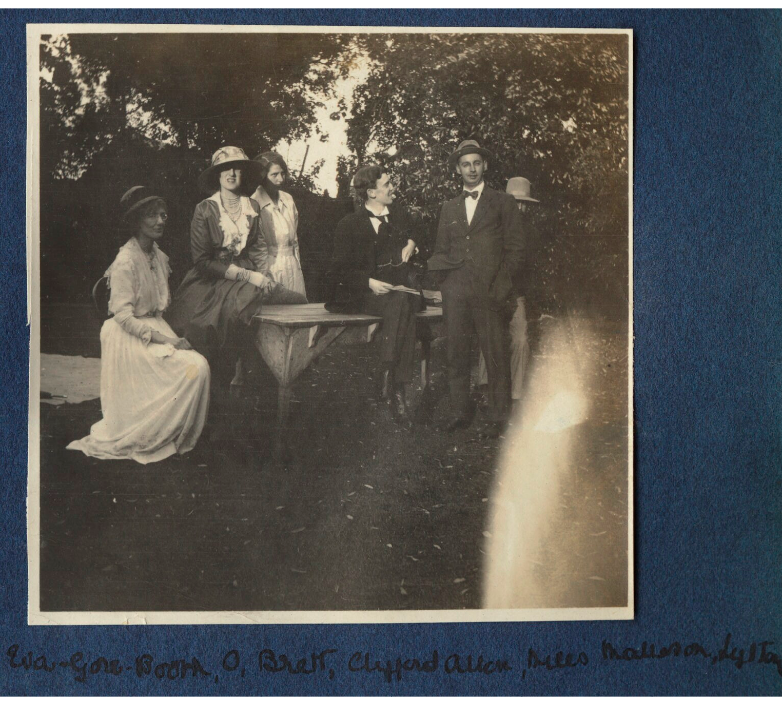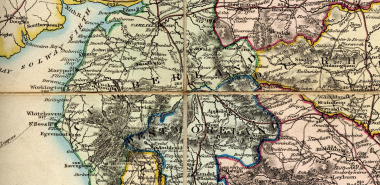
As I mentioned in my previous post, Thomas Baty, (1869-1954), was a transgender pioneer, who came originally from Carlisle, Cumberland.
During the 1900s, Thomas began to publish books on international law; but he also began a very different career, as an active critic of established ideas of gender and sex identity. In 1912, he established the “Aëthnic Union”, a society which was intended to ignore differences of biological sex, and the gender expectations which sprang from that.
This unusual sounding name was one which he derived from the Greek, “ethnos”, a race (of people); and he seems indeed to have envisaged opening up human potential, by removing what he perceived as the tyranny of sex based social conventions. There is a statement of his ideas, in a letter which he wrote, advertising his new society, to the radical, feminist journal, “The Freewoman”, in February of 1912. That he was reading and corresponding with such a radical publication is itself very noteworthy. It also tells us something about the sort of people to whom he thought his union would appeal. “The Freewoman”, a weekly feminist review, was known for discussing sexual matters as they affected women with an unusual openness for the time, although it discussed broader issues of gender, exploitation, and class too.
In this letter, the Aëthnic Union takes an uncompromising position on sex and gender issues: on the basis of biological sex, “there has been built up a gigantic superstructure of artificial convention which urgently needs to be swept away. And it does not see how it is to be swept away unless sex is resolutely ignored”. Indeed, sex distinctions “rivet on the soul the fetters of a warped ideal…that autocratic sternness which one has been taught is the ideal of the masculine…that narrow triviality which one is taught (less successfully) to consider the mark of the feminine”. (“The Freewoman”, Vol. 1 (14), 22 Feb, 1912, p.278)
Conventional distinctions “create an iron barrier between individuals”; because of them, people are “never permitted to be themselves. They are forced to strangle their own development. From that soul-murder the Union would liberate them.” (“The Freewoman”, Vol. 1 (14), 22 Feb, 1912, pp.278-9)
Of those who joined Thomas Baty in the Aëthnic Union, I shall mention in this post two significant women: Esther Roper and Eva Gore-Booth. As Emily Hamer and Sonja Tiernan note, a flier or newsletter for a meeting of the Union has been preserved, which names Eva Gore-Booth and Esther Roper as supporters.
Esther Roper, seated in the photo below, was a suffragist, active on behalf of working women, and a sexual radical. She lived with her collaborator and partner, Eva Gore-Booth, in Manchester, and from 1913 in London. Although these women would not have been described in the language of the time as “partners”, in the way in which they are today, they shared their lives, and were finally buried beside each other in Hampstead, London.

Eva Gore-Booth was an Irish writer and activist, a suffragist, who campaigned on behalf of working women, and for pacifism. She is seated on the far left of the photo below, at Garsington, Oxfordshire. Eva Gore-Booth formulated the idea to be developed in the journal, “Urania”, that [biological] ” ‘sex was an accident and formed no essential part of an individual’s nature’ “. (Tiernan, chp. 11)

Although both these ladies may appear demure in these photographs, they were in fact firebrands. Eva, interestingly, was the sister of Constance Gore-Booth, later known as the Countess Markievicz, who was to don uniform in the Easter Rising of 1916, and who took part in the fighting on St Stephen’s Green, Dublin; Constance later became the first women elected to Westminster, and the first female member of the Irish cabinet.
Let us go back to 1912, and to Thomas Baty, however. It is clear that as well as developing a distinguished legal career – he became the Joint Secretary of the International Law Association in 1905 – Thomas was mixing in some very interesting circles, of great LGBTQ+ and wider interest. Other members of the Aëthnic Union include the writer, Dorothy Helen Cornish, who supported alternative education, and Jessey Wade, who campaigned for animal welfare and vegetarianism.
To try and place the Aëthnic Union, and its agenda for erasing sex and stereotypical gender distinctions in context is a challenge. It does not appear to have survived for long as an organisation, and it certainly never gained popular support. However, it places Thomas Baty in a nexus of radically minded people, who were rethinking fundamentally important social issues. These very much include, but were not limited to, queer concerns. It is interesting to note too that the queer brew of thought in Baty’s circle would in time include transgender, transsexual, intersex, feminist, and gay elements. And the nucleus of associates and friends in the the Aëthnic Union were to go on to establish, edit, and run the genderqueer journal, “Urania”, until 1940.
Acknowledgements:
Emily Hamer. Britannia’s Glory: A History of Twentieth Century Lesbians. London: Bloomsbury, 2016 Hamer mentions the records and supporters of the Aëthnic Union on p.69.
Karen Steele, “A Case Study of Urania (1916-1940)” in Ed. Catherine Clay. Women’s Periodicals and Print Culture in Britain, 1918-1939: The Interwar Period. Edinburgh: Edinburgh University Press, 2018 Steele discusses Eva Gore-Booth’s phrase, “sex is an accident”.
Sonja Tiernan. Eva Gore-Booth: an image of such politics. Manchester: Manchester University Press, 2012 Tiernan discusses the Aëthnic Union, its newsletter, the Phoenix, and its supporters; she also discusses in detail Eva Gore-Booth’s phrase, “sex is an accident” in chapter 11.
Carla King, “The Other Sister, a review of Eva Gore-Booth: an image of such politics,” Irish Literary Supplement, March, 2014. At https://www.academia.edu/ and free to download.
Anne Fernihough. Freewomen and Supermen: Edwardian radicals and literary modernism. Oxford: Oxford University Press, 2013 Fernihough mentiones the Aëthnic Union on p.193
Angela Ingram and Daphne Patai. Rediscovering Forgotten Radicals: British Women Writers, 1889-1939. Chapel Hill ; London: University of North Carolina Press, 1993
Oxford Dictionary of National Biography, entry on Esther Roper https://doi.org/10.1093/ref:odnb/50081
Oxford Dictionary of National Biography, entry on Constance Georgine, Countess Markievicz https://doi.org/10.1093/ref:odnb/37472 Accessed 14 June, 2020.
These biographical entries can be viewed via the number on a Cumbria public library card.
https://modjourn.org/issue/bdr518277 Accessed 14 June, 2020. This page contains the edition of “The Freewoman” with Thomas Baty’s letter advertising the Aëthnic Union, which you may view or download..
Other editions of “The Freewoman” are here. https://modjourn.org/freewoman
https://womenslibrary.org.uk/explore-the-library-and-archive/lgbtq-collections-online-resource/the-politics-of-urania Accessed 14 June, 2020.
The National Portrait Gallery holds a photograph of Eva Gore-Booth.
https://www.happycow.net/blog/remembering-vegetarian-pioneers-henry-s-salt-ernest-bell
https://en.wikipedia.org/wiki/Esther_Roper
